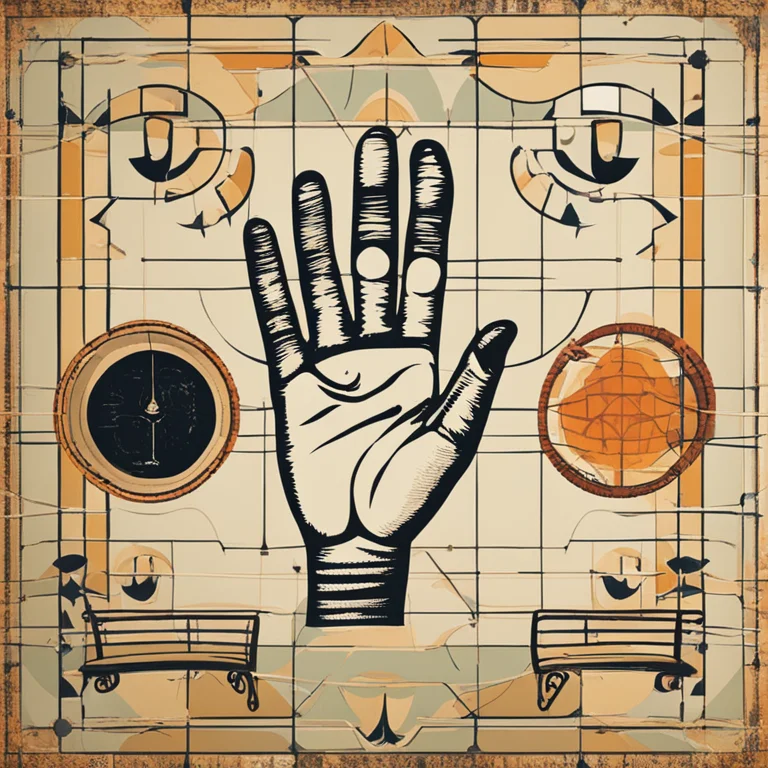
The Precision of Palmistry: Fact or Fallacy?
Explore the debate surrounding palmistry's accuracy as a tool for divination and personal insight in this comprehensive article.
article by Nora Pennington
Palmistry's Premise and Practice
When we think of palmistry, images of mystic readers scrutinizing the lines on individuals' hands often come to mind. Palmistry, or chiromancy, is an ancient practice dating back thousands of years, prevalent in various cultures worldwide. Its basic tenet claims that the patterns of lines and features on one’s hands can reveal personality traits, potential life paths, and future happenings. As intriguing as it sounds, the question arises – can such a practice truly hold accuracy in foretelling personal details or future events? Is there a ground where science and this esoteric tradition intersect?

Scientific Scrutiny and Studies
Among the scientific community, skepticism towards palmistry remains high. Many scientists and skeptics view the practice as unfounded, citing the lack of empirical evidence and reproducible results. However, despite the reservations, some studies have pointed out interesting correlations between hand features and certain medical conditions, suggesting that while palmistry might not predict the future, the hands do tell us something about our health and genetics. Yet, these findings do not support the broader claims of palmistry regarding life events and personality.

Psychological Perspectives and Placebo
The psychological angle presents a different understanding. Supporters argue that palmistry sessions often entail a deep psychological interaction between the reader and the client. Clients might derive value and self-reflection from these readings, irrespective of their empirical accuracy. Some psychologists suggest this is akin to a placebo effect – if the individual believes in the practice, they might achieve positive personal results, though these are not attributed to palmistry’s accuracy but rather to belief-induced psychological effects.

Confirmation Bias at Play?
Critics of palmistry often point to the cognitive bias called 'confirmation bias' to explain why people might believe in its accuracy. This is where individuals favor information that confirms their preexisting beliefs, dismissing contradictory evidence. For instance, if a positive aspect of a reading comes true, a person is more likely to remember that over the predictions that didn't materialize, thus giving an illusion of palmistry's reliability which might not withstand rigorous analysis.

Divergent Beliefs and Culture
Belief in palmistry varies culturally and is deeply ingrained in some societies. In these contexts, palmistry is not merely about accuracy but also about tradition and cultural identity. The modern resurgence of interest in metaphysics and alternative spirituality means palmistry remains popular, with many seeking its counsel for insights into their personal journey. Whether one regards palmistry as accurate may have as much to do with cultural and individual belief systems as with objective truth.
Advancements and Technology
As we venture into 2024 and beyond, the fusion of ancient practices like palmistry with cutting-edge technology presents an interesting development. There are applications and software that purport to analyze palm lines using algorithms and databases. While a leap from the traditional personal reading, this new approach attempts to standardize interpretations, seeking to bring a level of consistency to a traditionally intuitive art. It remains to be seen, however, if these technologies can convincingly validate the practice’s accuracy.
Personal Experiences vs. Generalizability
Lastly, individual experiences with palmistry vary widely. For some people, palm readings have brought profound insights and astonishing synchronicities that seem to support the practice's accuracy. Yet these individual anecdotes do not equate to widespread evidence. The scientific method requires reproducibility and generalizability, which palmistry has yet to demonstrate in a controlled setting. Consequently, while personal stories are compelling, they do not establish palmistry as an accurate practice for the broader population.
Published: 1/11/2024
Modified: 1/11/2024
More predictions
Come back here soon to learn more about yourself and your future


The Basics of Palm Reading: A Beginner's Guide
Discover the basics of palm reading in this comprehensive guide aimed at beginners interested in the ancient practice of palmistry.


The Secrets of Palmistry: Interpreting Hand Reading Lines
Delve into the fascinating world of palmistry and discover what your hand reading lines reveal about your destiny, personality, and future.


Palm Lines: A Guide to Your Hands' Secrets
Learn the art of reading palm lines with our straightforward guide. Discover what your hands reveal about your personality, destiny, and life!